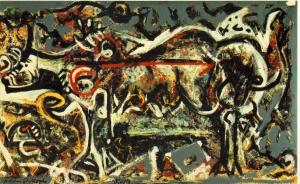Feminism: most representative characteristics, works and authors
The word "feminism" can be understood in two ways. On the one hand, as a principle of equal rights between men and women. On the other, as the set of belligerent movements whose purpose is to achieve real equality of rights civil, political, economic, cultural, sexual and social between men and women through actions and reflections.
As a movement, feminism has been gaining space by blood and fire since the 18th century. The intellectual environment of the Enlightenment, which called for the imposition of reason as a method and liberalism as a principle, encouraged women to claim their rights.
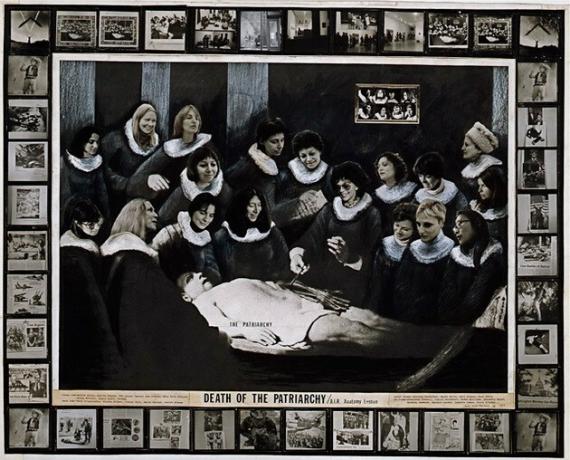
In this context, the French Revolution of 1789 made possible the declaration of the Universal Rights of Man, but these rights were not so universal, since they excluded women.
Although much progress has certainly been made since then, there are many types of feminism today. This is because, despite all the achievements, discrimination and violence against women continue present, sometimes under masked forms of domination, in both conservative and "liberals".
With these differences in mind, we will make an effort to present the general characteristics of feminism, hoping that they do justice to the cause and to the diversity of agendas.
Characteristics of feminism
Appeals to the universal principle of reason as a tool
In the Enlightenment or Enlightenment, reason was raised as a tool common to all human beings. Reason was invoked to confront the weight of tradition and the dogmatic fanaticism of some religious sectors. But men did not question the position of women as they considered it a “natural” consequence of their biological condition.
The women recognized the opportunity to debate this idea, aware as they were that the assigned roles corresponded to tradition and not to the nature of gender. From that moment, feminism, in all its manifestations, appeals to the principle of reason as a method to denature oppression and violence against women.
Adheres to the principle of individual freedom
If freedom is a universal right, it cannot be conditional on gender. This principle was also invoked for the first time in the 18th century without taking women into account.
Feminism understood and understands that in a society of equals there can be no impairment of the right to free choice, to the development of the own personality and the exercise of civil and political rights based on gender or any other element unrelated to reason and ethics.
Activate vindication of rights
The reflection on the position of women in society is much older than feminism as a movement, but it was no more than a memorial of grievances. Since the movement began to be articulated, it became a way to defend and obtain the rights, freedom and human dignity of women.
Build knowledge
Feminism has not only generated activist movements, but has also developed a complex theoretical framework. The different theories developed by feminism make visible the conflicts and possibilities of women, as well as the urgency of recognizing her rights.
In addition, the feminist movement has helped to elaborate a diagnosis of social reality and to identify a set of notions that are fundamental today to understand changes in direction historical. In this sense, feminism builds knowledge. Two of its elementary concepts are patriarchy concept and the notion of gender. Let's look at each one separately.
Concept of patriarchy
Feminism is based on the definition and denunciation of patriarchy. The term derives from ancient Greek and means 'command of the father'. With this expression, feminism refers to the criteria and ways in which authority has historically been exercised in society. In effect, the world is organized on the basis of male authority, which is considered natural to its biological condition as it represented strength and protection in ancient times. This is how the order of the family, where the father represents the head, is transformed into an image of the social world.
From the dominion of patriarchy derives the naturalization of a series of factors that create oppression and poverty among women, such as:
- lower wages for the same job;
- reserving the best jobs for men;
- handing over low-motivating or unpaid jobs (such as the home) to women;
- use of the symbols of sexuality totally oriented to male pleasure;
- naturalization of gender violence;
- naturalization of the language of the masculine as a measure of the human (example: use of the word "man" to refer to "humanity").
Notion of gender
Feminist theories have helped to understand one of the most complex phenomena in the human experience. By questioning gender roles, that is, the distribution of tasks according to the “biological order”, feminism has opened up reflection on the notion of gender itself.
Thus, it has been possible to understand that the notion of gender is a cultural construction and is not natural. That is, there is no biological reason that men do not do housework or that women should not go to school. The reason for this is historical and cultural, not biological or natural.
However, it is understood that there are biological differences. Therefore, theories distinguish between biologically assigned gender and the socially constructed notion of gender.
From this type of proposals arise the gender studies, in which it is investigated and reflected on sexual diversity and the construction of identities.
But there is also a very interesting field of reflection, which is the studies on the masculinity. If the role historically assigned to women is to be revised, so must the notion of masculinity, according to which the male is represented as a being without feelings and violent by nature.
Defend specific rights
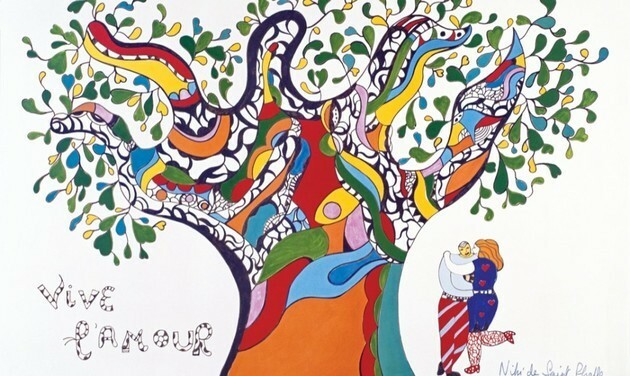
Feminism wants to institute concrete historical changes in search of a society of peers, of equals. But although many of these rights are a reality in Western societies, they are still in conflict in others, such as Muslim confessional states, for example. Furthermore, even within the framework of Western societies, the rights obtained are exercised with difficulty and not without controversy. Therefore, the following points continue to be part of the feminist agenda:
- Right to work and labor equity:
- Right to education at all levels;
- Right to vote under the same conditions as men;
- Reproductive rights;
- Sexual rights;
- Right to respectful and dignified treatment.
It's a diverse movement
The situation of women in the world is not only unequal compared to men. There are also inequalities between nations, since in some some conquests have been achieved, while in others women continue to suffer the condition of subordination to the male will.
But even within the most "liberal" societies, there are recognizable differences in the treatment of women based on their ethnicity, social class, religion or sexual orientation. For this reason, many aspects of feminism have emerged that seek to vindicate all the scenarios of struggle that women must face in order to become fully free. Among the many current feminist movements, we can mention the following.
Philosophical feminism
Part of the contemporary philosophical method to reflect on the concept and role of women, with the aim of understand the ultimate reasons for their subordinate status in the social order and the modes of transformation of that reality.
Liberal feminism
It seeks to vindicate the capacities of women that have traditionally been discursively devalued or impeded through legal exercise, so its purpose is to achieve inclusive laws and regulations, which guarantee the equality of opportunities.
Equality feminism
It is focused on the search for equality between men and women within society from the realization of a new social pact.
Difference feminism
It articulates the defense of women's rights, emphasizing the specificity and differences of the female gender with respect to the male.
Socialist feminism
It studies power relations, especially economic ones, in the perpetuation of models of oppression towards women. Key to its analysis are the categories of patriarchy Y capitalism.
Postcolonial feminism

He reflects on the scope and modes of the patriarchal order in the cultural scheme of non-Western nations, where the survival of the colonized mentality, racism, endoracism and social inequality play a role crucial.
Black feminism
Study and take action regarding the particular relationship of racism with the perpetuation of sexism and models of oppression towards women.
Lesbian feminism
Part of the analysis of the concept of heterosexuality and its naturalization. It questions the framework of heterosexualized education as a discourse that perpetuates the definition of social roles under heteronormative principles.
Ecofeminism
It is a feminist movement that actively participates in the discussion about the environment. From his point of view, only an ecological social experience can guarantee a non-oppressive order, free of hierarchies and militarization.
Appeal to the importance of matriarchy, which he considers horizontal and postulates that this was prior to the patriarchal order, characterized by the land and the commodification of the female body.
Cyberfeminism
It is closely related to technological development, the emergence of the Internet and cyberspace. This type of feminism studies the visible gender constructions in the communication resources of the 2.0 era. These media are seen as spaces for the subversion of the masculine order, as well as for the proliferation of diversity and multiplicity of subjectivities.
See also 18 key moments in the history of feminism.
Most important works and authors
Among some of the most important voices of feminism and their fundamental reference works, we can mention the following:
Mary Wollstonecraft
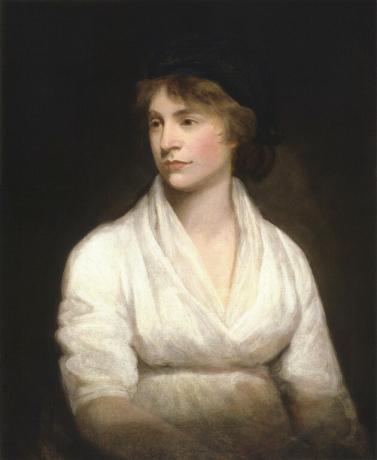
Born in England in the 18th century, she excelled as a writer and philosopher. She was famous for being one of the first women to be able to live independently thanks to her work and her own merit. She was the author of the book Vindication of women's rights, in which she argues that social differences between men and women do not derive from biological nature but from inequality in education and rights.
Olympe de Gouges

Born in France in the 18th century, she was a playwright, writer, political philosopher, and pamphleteer. She fought alongside the abolitionists for the eradication of laws contrary to morality and virtue, such as slavery. His Declaration of the rights of women and citizens she cost him his life by beheading at the hands of the Girondins.
Virginia Woolf

Born in England (1882-1941), she is one of the most prominent English-language writers, representative of modernism in her Anglo-Saxon current. She also became a prominent figure in feminism. Your essay A room of my own has been considered one of the most important manifestos on the participation of women in a society designed for men, making specific reference to the literary world. In the essay, Virginia Woolf reflects on the position of women as writers and what they need to be able to compete as equals: their own money and their own room.
Simone de Beauvoir
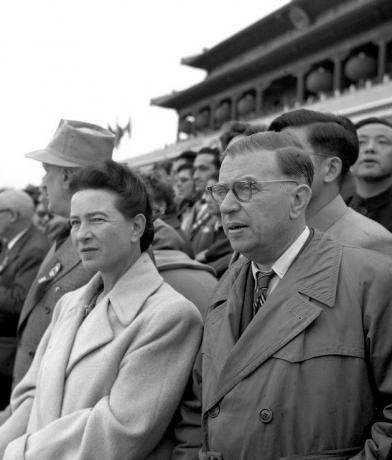
Born in France (1908-1986), she was a philosopher, writer and teacher, committed to the feminist cause and the fight for human rights. Her book titled The second sex It has become a fundamental reference for feminism, an issue that she addresses from an existentialist perspective.
You may also like: Simone de Beauvoir: 7 keys to understanding who she was and her contributions to feminism.
Celia Amorós

Born in Spain in 1944, she is an essayist, philosopher and writer. She has broadly conceptualized the problems of contemporary feminism. One of the fundamental points of it has been the relationship between feminism and the Enlightenment. Among her many books, stands out Towards a critique of patriarchal reason.
María Marcela Lagarde and de los Ríos
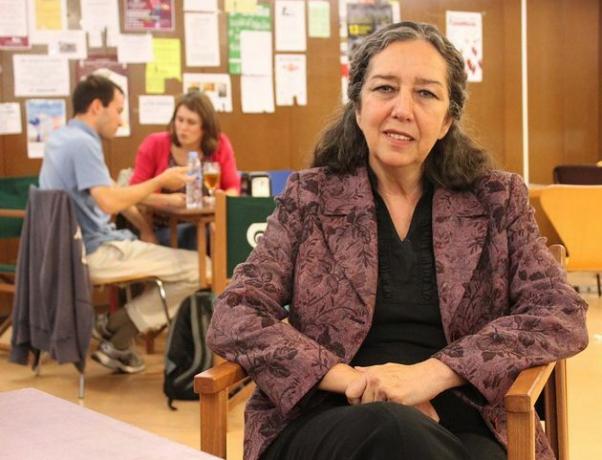
Born in Mexico in 1948, she is an anthropologist specializing in ethnology. She is a founding member of the Network of Researchers for the Life and Freedom of Women. It has been devoted to the study of the relationship of women with power, sexuality, culture, motherhood, etc. Among his many works we can mention the book The captivities of women: wives, nuns, whores, prisoners and crazy women.
Amelia Valcárcel

Born in Spain in 1950, she is a Spanish philosopher who has stood out for her defense of philosophical feminism and, within this, feminism of equality. One of her most influential works has been the book Feminism in the global world.



